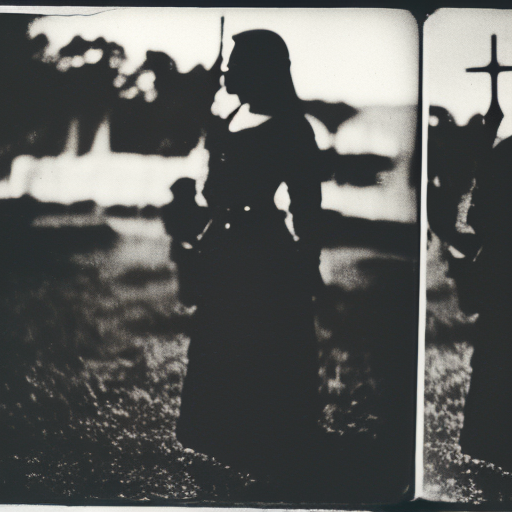Summary: Joan of Arc
Joan of Arc, also known as the Maid of Orleans, was a young French peasant girl who played a significant role in the Hundred Years’ War between France and England. Born in 1412 in Domrémy, France, Joan began hearing voices from saints at the age of 13, urging her to support the French Dauphin, Charles VII, and help him reclaim his throne from the English.
Early Life and Visions
Joan grew up during a time of turmoil in France, with the country divided between the Armagnacs, who supported Charles VII, and the Burgundians, who sided with the English. At the age of 16, Joan convinced a local nobleman to take her to the Dauphin’s court in Chinon. Despite initial skepticism, Charles VII granted Joan an audience and was impressed by her conviction and knowledge of military affairs.
Leadership and Military Campaigns
In 1429, Joan was given command of an army and led them to several victories against the English. She lifted the siege of Orléans, a crucial turning point in the war, and helped Charles VII to be crowned King of France in Reims. Joan’s military successes were attributed to her unwavering faith and her ability to inspire her troops. However, her military career was short-lived, as she was captured by the Burgundians in 1430.
Trial and Execution
Joan was sold to the English, who put her on trial for charges of heresy and witchcraft. The trial was politically motivated, aimed at discrediting Charles VII and his claims to the throne. Despite Joan’s strong defense, she was found guilty and sentenced to death. On May 30, 1431, at the age of 19, Joan was burned at the stake in Rouen, France.
Legacy and Canonization
Joan’s death did not diminish her impact on French history. In fact, her martyrdom only solidified her status as a national heroine. Over the years, Joan’s reputation grew, and she became a symbol of French resistance and patriotism. In 1456, a retrial was conducted, and Joan was declared innocent of all charges. She was later beatified in 1909 and canonized as a saint in 1920.
Significance
Joan of Arc’s contributions to the Hundred Years’ War were remarkable. She provided a much-needed morale boost to the French forces and played a crucial role in the ultimate French victory. Her unwavering faith and determination inspired countless others, both during her time and in the centuries that followed. Joan’s story continues to captivate people around the world, serving as a reminder of the power of conviction and the impact of individuals on history.
Conclusion
Joan of Arc’s life and legacy are a testament to the extraordinary impact that one person can have on the course of history. From her humble beginnings as a peasant girl to her leadership on the battlefield, Joan’s story is one of bravery, faith, and resilience. Her unwavering belief in her mission and her determination to see it through, even in the face of adversity, make her an enduring symbol of courage and inspiration.












